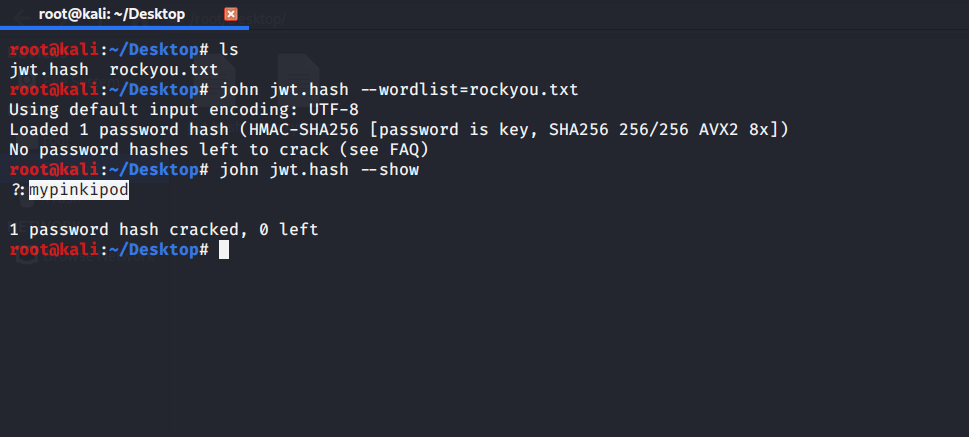Generate Jwt Secret Key Python
- Jwt Secret Key Generator Python
- Generate Jwt Secret Key Python Online
- Generate Jwt Token With Private Key Python
- Generate Jwt Secret Key Python Code
JSON Web Token (JWT) is a compact URL-safe means of representing claims to be transferred between two parties. The claims in a JWT are encoded as a JSON object that. JWT authentication tokens are made of three sections that are: Base64Url encoded with no padding. The third section is an HMAC: of the first two sections, so that without knowing the secret: key you cannot verify the token nor create tokens that will be: accepted on the other end. from jwt import jwt token = jwt.createsignedtoken(b. After making a connection with MongoDB the next step is to create a Flask App and do some configuration on it. Use the Following Code. App = Flask(name) jwt = JWTManager(app) # JWT Config app.config'JWTSECRETKEY' = 'this-is-secret-key. Secretkey: Backend server secret key. Use the method above to generate it. Firstsuperuser: The first superuser generated, with it you will be able to create more users, etc. By default, based on the domain. Firstsuperuserpassword: First superuser password. Use the method above to generate it.

PyJWT is a Python library which allows you to encode and decode JSON WebTokens (JWT). JWT is an open, industry-standard (RFC 7519) for representingclaims securely between two parties.
Sponsor¶
| If you want to quickly add secure token-based authentication to Python projects, feel free to check Auth0’s Python SDK and free plan at auth0.com/developers. |

Installation¶
You can install pyjwt with pip:
See Installation for more information.
Example Usage¶
Jwt Secret Key Generator Python

See Usage Examples for more examples.

Generate Jwt Secret Key Python Online

Generate Jwt Token With Private Key Python
Index¶
Generate Jwt Secret Key Python Code
- Installation
- Usage Examples
- Frequently Asked Questions
- Digital Signature Algorithms
- API Reference
- Changelog